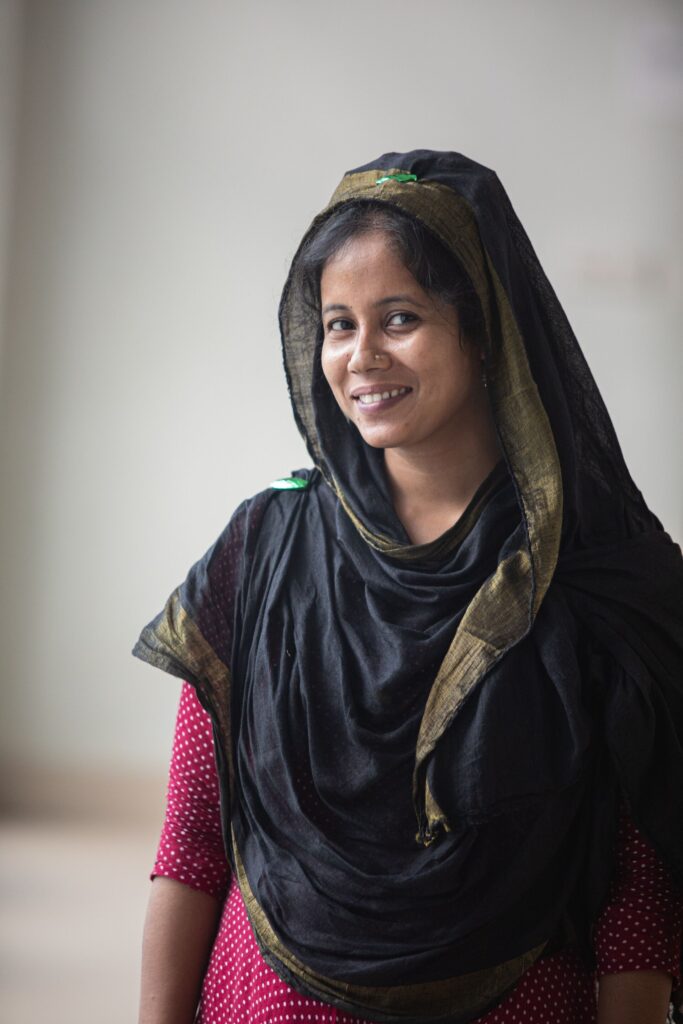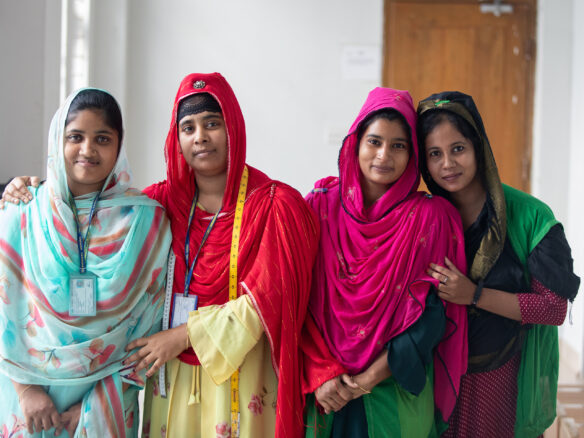
430 million people globally are working in the textile industry and 75% of garment workers are women. And as new circular value chains emerge, even more people get involved in this massive industry. Building social inclusion along the value chains of fashion is crucial, but no actor can do it alone.
To equip women with the best possible opportunities to grow and to lead their own lives, we need the women themselves to engage from the very start in creating the blueprint of an inclusive future. They are the ones with the lived experiences of the deeply rooted injustices that upholds the current social structures around women.
Creating an ecosystem for change
The current status for women around the world, and also in the fashion industry, is connected to multi-layered interconnected challenges that need to be addressed simultaneously. We need to take on a holistic approach to the complex human systems we live in – where a coalition of actors with different expertise come together and leverage each other’s strengths.
The H&M Foundation is currently driving two Collective Impact initiatives in India and Bangladesh where a network of local experts, non-profits, for-profits, governmental bodies, and knowledge partners are working closely alongside women, learning and acting together to promote equity. As part of our strategy, we also make sure to support our partners in integrating gender components in all phases of their activities.
“We are here to break the systemic barriers to gender equality and promote social inclusion. Imagine the effect it would have if industry actors came together to create a future that is equitable and inclusive.”
Fernanda Drumond, Strategy Lead, H&M Foundation

Seeing is believing
The ambitions of the projects we run are to challenge current systems and in order to do so, we are convinced we also need to address the narrative around it. This is why one important part of the work that we do is to challenge stereotypes and misconceptions around what women are capable of. For example, our partner C-CAB (Center for Communication Action Bangladesh) carries out a perception change campaign in the broader community in Bangladesh about women’s roles in career, technology and leadership, in order to improve retention and increase the share of women in technology and leadership roles in the Ready Made Garment sector.


